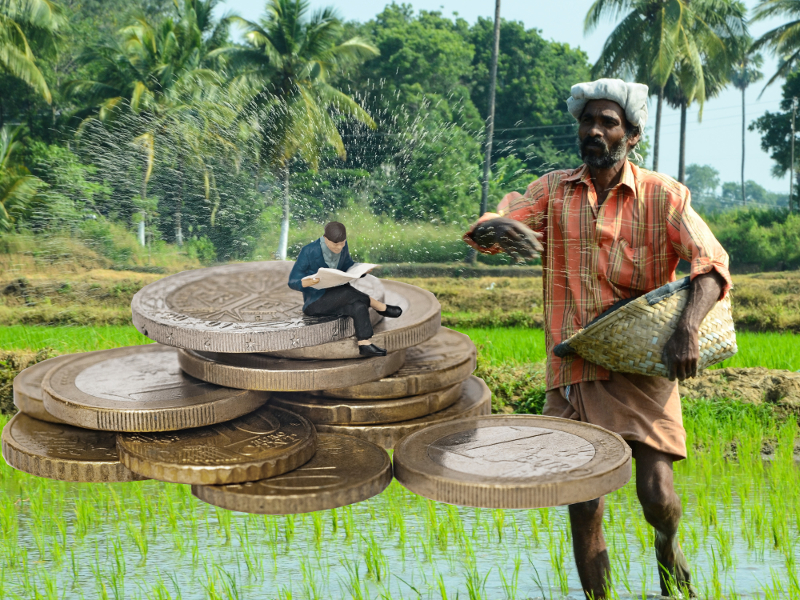By Sarabjeet Dhody Natesan
My first question, in my first Macroeconomics class, is to ask my students what they think is the most important day in the diary of the finance minister of India.
I am usually told that it is the day the budget is announced, the day the GDP figures are released, the RBI reports, etc.
My answer- the day the monsoons hit India on the coast of Kerala, around the 5th of June.
Why?
Because when the monsoons are on time and the rains are good, food grain production is plentiful.
The farmers are assured of produce to sell. With that, the primary sector booms, labor is required to man the foodgrains Mandis and supply chains, and wages are paid. Credit is given and taken, creating further capacity in the market. People are hired and incomes are earned. There is income all around. Even the fast-moving consumer goods sector companies feel reassured because their goods get a ready market in rural areas.
The manufacturing sector is bolstered: agricultural implements have a market, tractors are sold, urea is bought, seeds are bought, and there is a feeling of relief and gratitude, festivals are celebrated, and personal expenses are undertaken.
The services sector is buoyed, economic activity occurs, people build homes, buy essentials, eat out, visit shopping malls, buy cars, television sets, and other goods that catch their fancy. They even take holidays. It also means that our jobs in universities and corporate houses, architectural firms, are secure. Marketing strategies are written, logistics are worked out, supply chains are drawn, labour contracts are prepared and people have a job and income security.
The government feels confident because the aggregate demand of the economy is evidently robust. It also means that the annual production, consumption, investment employment, and tax collection will be normal.
65% of our population is rural and engaged in agriculture one way or the other. They spend 20% of the income the country earns (as the sector earns 20% of the GDP). But they don’t save much because they don’t earn enough to save. Their spending become the revenues of businesses. The businesses in turn make profits and pay salaries which are further saved and invested, thus creating and funding capital markets, financial instruments, and the banking sector.
Economics calls this a play of inter-sectoral linkages; primary-secondary-services.
If anyone tells you that farmers are not important, I hope they know that without them earning and spending, the corporate sector won’t have jobs left very soon. The governments will have no income from tax collecting (not much income tax comes from this sector but its contribution to taxes on goods and services consumed is very high).
Put down the farmers today and you will regret it tomorrow because you will not be able to afford the high-priced food, courtesy the large corporates that will take over farming from them.
The official word is confusing and perhaps obfuscating: some say that there is no connection between MSP and the farm bills, that once the bills are implemented, the agricultural sector will see unimaginable prosperity. Others say that the UPA had the farm bills in their manifesto. There are as many voices as there are stakeholders. Back in 2014, prime minister Modi had said that if the NDA comes to power, the Swaminathan report on farm reforms will be implemented within 12 months. Well, the UPA lost and NDA won. It is now time for the government to remember what they had promised instead of looking at what the UPA had promised and lost.
Maybe the farmers should just save their produce for two years and stock up. And not grow anything at all after that.
Let’s see who will keep the economy afloat then.
Disclaimer: The opinions expressed within this article are the personal opinions of the author. AlignIndia does not take any responsibility for the content of the article.
(Sarabjeet Dhody Natesan is a student of Economics and Policy and teaches at a Liberal Arts University in the South of India. She lives near her favourite seashore, in Chennai, with her family)


